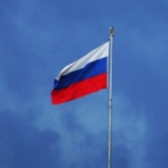-
Russian Investigators to Attempt to Crack iPhone Belonging to Ambassador's Killer
Russian investigative experts sent to Turkey to help with the investigation into the assassination of Andrey Karlov, the Russian Ambassador to Turkey, are attempting to crack the killer's iPhone, but doing it without asking Apple for help.
- December 23, 2016
- 03:56 AM
 0
0
-
Russian Cyber-Espionage Group Tracked Ukrainian Military Using Android Malware
A cyber-espionage group linked to the Russian military has developed Android malware which it used to infect the smartphones of Ukrainian soldiers and track Ukrainian field artillery units, according to a report released today by Crowdstrike.
- December 22, 2016
- 09:26 AM
 1
1
-
Cyber-Attack Causes Second Power Grid Outage in the Ukraine in the Past Year
According to statements from Ukrenergo, a Ukrainian energy provider, a cyber-attack may have caused a power outage in northern Ukraine, almost a year after another cyber-attack had shut down power supply across several regions during Christmas 2015.
- December 20, 2016
- 07:35 AM
 0
0
-
Hackers Attacking Russia Will Face up to 10 Years in Prison According to New Bill
The Russian Parliament is working on a new law that would introduce criminal liability for hackers creating tools and participating in cyber-attacks against Russian infrastructure.
- December 08, 2016
- 06:00 AM
 1
1
-
Ransomware Author "Pornopoker" Arrested in Russia
Russian authorities have arrested a man suspected of writing and distributing ransomware. The suspect, whose name hasn't been released yet, goes by the nickname of Pornopoker.
- December 04, 2016
- 07:55 AM
 2
2
-
Hackers Stole $31 Million from Russia's Central Bank
Unidentified hackers have stolen $31 million (₽2 billion) from customer accounts at Russia's Central Bank, but officials have managed to recover $26 million (₽1.66 billion) from the stolen funds, said the bank in a report released today.
- December 02, 2016
- 03:37 PM
 0
0
-
Russia Asks Opera to Implement Site Blocking Filters in Its Turbo Mode
Roskomnadzor has had secret meetings with Opera representatives, during which Russia's communications regulator has asked Opera Software to implement a site blocking feature in Opera's Turbo Mode.
- November 23, 2016
- 08:45 AM
 3
3
-
Russian Spammer Uses Fake Google Domain to Tell Webmasters to Vote Trump
Some clever Russian crook has found a way to register a lookalike Google domain by taking advantage of Unicode characters to create an alternative way of spelling Google.
- November 21, 2016
- 04:35 PM
 1
1
-
LinkedIn Banned in Russia, More Tech Giants Likely to Follow
A Russian court in Moscow upheld a decision to block LinkedIn across Russia after the company had failed to abide by a law mandating that all foreign companies store data on Russian users inside the country's borders.
- November 14, 2016
- 10:00 AM
 0
0
-
Cyber-Espionage Group Launches Spear-Phishing Campaign Six Hours After Trump Wins Presidency
Six hours after Donald Trump had won the 2016 US Presidential Election, a cyber-espionage group believed to operate out of Russia had launched a wave of spear-phishing emails aimed at various US think tanks and non-governmental organizations (NGOs).
- November 10, 2016
- 05:05 PM
 0
0
-
Did Russia Hack The New York Times? The FBI Seems to Think So
U.S. intelligence officials think hackers working for Russia perpetrated a series of alleged intrusions targeting reporters at The New York Times and other media outlets.
- August 24, 2016
- 02:21 PM
 1
1
 1
1















